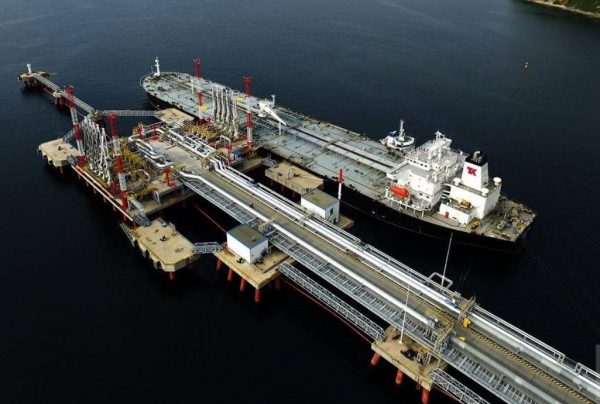
In an interview with Reuters, Greek Finance Minister Kostis Hatzidakis stated that fiscal prudence was paramount, and that the country had to learn from past mistakes.
Outside the annual meetings of the International Monetary Fund and World Bank, Hatzidakis said increases in wages could only be put into place as long as they did not endanger the country’s debt-to-GDP ratio.
“We learned the lessons of the previous decade. Greece was living beyond its means,” Hatzidakis stated, referencing the crushing financial crisis.
Many analysts agree the debt crisis was brought about by a combo of unregulated taxation structures, inflated public sector pay, and high public debt. In exchange for massive bailouts for this debt, the EU, the European Central Bank, and the IMF imposed a harsh decade of austerity.
After a decade of reforms and bailouts, today Greece’s debt is shrinking and Greece’s finance ministry has committed to early repayment of some $8 billion in bilateral debt in the next four years, estimating that this would lower the country’s debt-to-GDP ratio – currently Europe’s highest – from 162% this year to 133.4% by 2028.
“We have the surveillance of the markets and investors. So we know that fiscal prudence is a precondition for us to convince everybody – the markets, the investors – that we are a credible government and credible country,” Hatzidakis told Reuters.
But for average Greeks, the financial situation is still quite dire. Unemployment is over 9%, Greece tops europe in rent payment struggles, and high inflation has nullified wage increases.
When asked specifically about the strikes of teachers and ship workers union that took place this week, demanding higher wages, Hatzidakis stated: “We always try to satisfy requests coming from various groups, to the extent that these requests do not put at risk the execution of the budget and the target set for the country and for the Greek economy as a whole.”
Last week healthcare workers also went on strike demanding higher wages.
Looking at the IMF building, Hatzidakis told Reuters, “Coming to this building, I always remember the previous decade, and I always remind myself that I shouldn’t allow Greece to come back to the previous decade but also to grow in a sustainable manner for the benefits of the Greeks.”
Source: tovima.com
Latest News

Motor Oil Results for 2024: Adjusted EBITDA of 995 mln€; Proposed Dividend of 1.4€ Per Share
Adjusted EBITDA for 2024 was down 33% yoy. The adjusted profit after tax for 2024 stood at 504 million euros, a 43% decrease from the previous year

Cost of Living: Why Greece’s 3% Inflation Is Raising Alarm
Greece appears to be in a more difficult position when it comes to price hikes, just as we enter the era of Trump’s tariffs.

Fitch Ratings Upgrades the Four Greek Systemic Banks
NBG’s upgrade reflects the bank’s ongoing improvements in its credit profile, Fitch notes in its report, including strong profitability, a reduction in non-performing exposures (NPEs), and lower credit losses

Trump to Announce Sweeping New Tariffs Wednesday, Global Retaliation Expected
With Trump's announcement just hours away, markets, businesses, and foreign governments are bracing for the fallout of one of the most aggressive shifts in U.S. trade policy in decades.

Inflation in Greece at 3.1% in March, Eurostat Reports
Average inflation in the eurozone settled at 2.2%, compared to 2.3% in February

Greece’s Unemployment Rate Drops to 8.6% in February
Despite the overall decline, unemployment remains higher among women and young people.

Jerry Kalogiratos Highlights Key Role of Energy Transition and Data Demand in LNG Outlook
Energy transition and the prospects of LNG were discussed at Capital Link’s 19th Annual International Maritime Forum, during a panel discussion with Jerry Kalogiratos (Capital Clean Energy Carriers Corp.)

Santorini Safe and Ready for a Dynamic Tourism Season
Authenticity, cultural heritage, and genuine experiences at the center of Santorini's new promotional campaign

Electricity Bills: Greece Announces Reduced Tariffs Schedule
Greece will now offer lower electricity rates between 11:00-15:00 and 02:00-04:00

Chevron Confirms Eyeing Natural Gas Exploration South of Crete
Chevron recently declared its intent to explore a third area, south of the Peloponnese.












![Τουρκία: Μεγάλες βλέψεις για παραγωγή ηλεκτρικών οχημάτων [γράφημα]](https://www.ot.gr/wp-content/uploads/2025/03/ot_turkish_autos-90x90.png)











![ΕΛΣΤΑΤ: Αυξήθηκε η οικοδομική δραστηριότητα κατά 15,6% το Δεκέμβριο [πίνακες]](https://www.ot.gr/wp-content/uploads/2025/03/DSC9655-2-1024x569-1-90x90.jpg)

















 Αριθμός Πιστοποίησης
Αριθμός Πιστοποίησης